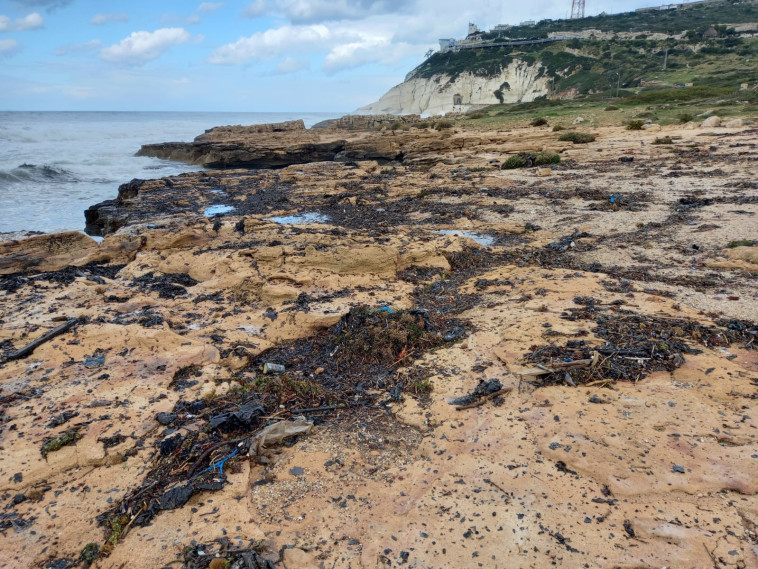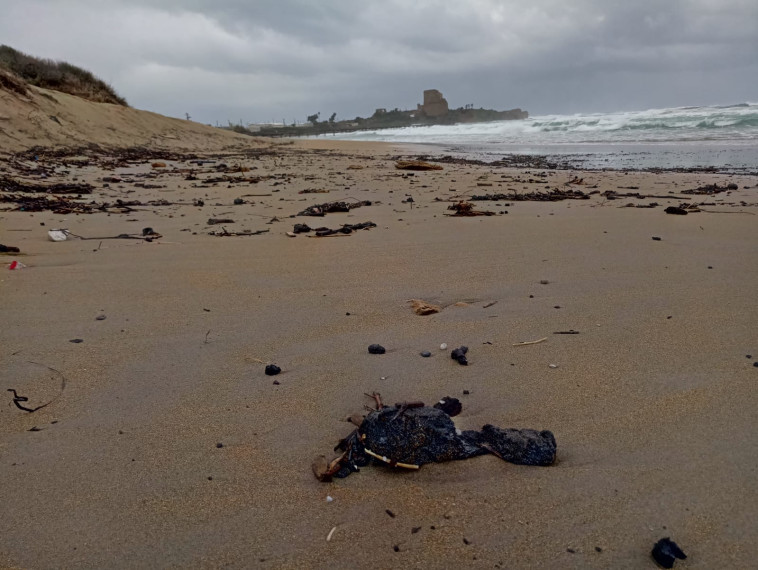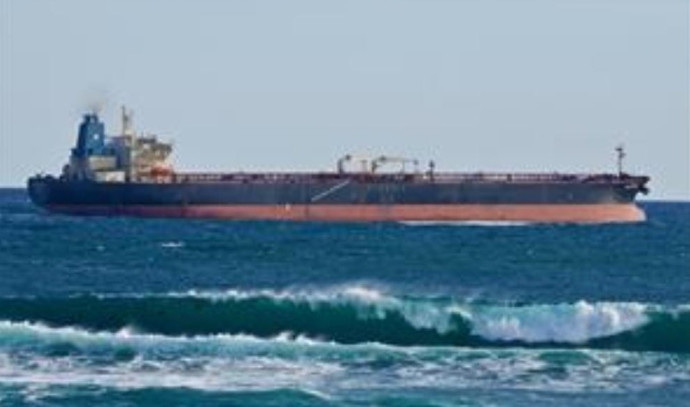Breakthrough in investigating the cause of the environmental disaster on the shores of the Mediterranean in Israel: Exactly two weeks after the damage of marine pollution in oil began to appear on the country’s shores, the Minister of Environmental Protection, Gila Gamliel, announced this evening (Wednesday) in a tweet on Twitter that The ship responsible for the pollution is a Libyan-owned ship, which set out from Iran.
Gamliel tweeted earlier on her Twitter account: “We have put our hand on the criminal ship. Our long arm will reach anyone who harms nature, the sea and our beaches.” As stated in a statement issued by Minister Gamliel later, she revealed the identity of the ship: “Between February 1-2, in our economic waters, a crude oil tanker spilled in the middle of the sea. We discovered that it was not just environmental crime but environmental terrorism. A pirate ship owned by a Libyan company is responsible. “After refilling crude oil, it made its way from Iran and the Persian Gulf through the Suez Canal and turned off its transmitters illegally near our shores and then continued on to Syria.”
Rani Amir, director of the National Marine Environmental Protection Unit at the Ministry of Environmental Protection, shared the findings of the investigation: “The first evidence of an oil slick near 70 km offshore, in our economic waters, is seen in models developed based on satellite footage on 5 February. We saw the damage on the beaches on the 17th of the month. From the moment we realized it was crude oil we knew the source was certainly an oil tanker, and hence we hired the help of a company that helped us reduce the suspicious vessels until we got to the Emerald tanker. We know how to estimate the rate of progress of an oil slick in the sea and we calculated according to this model the radius in which the polluting tanker was supposed to be located. We reduced the options to two tankers, one was excluded because its location relative to the stain seen on the 5th of the month did not make sense. ”
Amir also spoke about the seizure of the criminal ship and how the environmental disaster occurred: “This is how Emerald was finally left.” It is Libyan-owned and sails under the Panama flag. It claimed crude oil in the Persian Gulf, Iran or Iraq, and on 1.2 turned off its automatic identification system after leaving The area of Egypt and the Suez Canal and was close to our shores and at 3.2 turned back on its identification system.Its cargo was unloaded between February 1 and 14 – “It did not dock in any port, which means that it unloaded its fuel illegally into smaller ships in the middle of the sea off the coast of Syria, and in the process created two more smaller fuel stains.”
“For us, there is no doubt that this is the tanker that caused the pollution. Today we verified this with the help of the American Oceanic Agency and the data we received from them confirm our unequivocal findings. The Emerald has not circulated in the eastern basin of the Mediterranean for the past eight years. “She changed to the flag of Malta to disguise her identity. It is a change of identity of a pirate ship in violation of the sailing laws, when there is a series of Libyan companies associated with the ownership of this ship,” Amir concluded.
 The tar event in Rosh Hanikra (Photo: Gidi Bettelheim)
The tar event in Rosh Hanikra (Photo: Gidi Bettelheim)Minister of Environmental Protection Gamliel added: “This is an old ship that cannot be received at European ports. The ship is currently in Iran. Israel will claim compensation from the insurers of the Emerald tanker on behalf of all Israeli citizens for harming nature, health, animals and the landscape. We find that Iran operates “Terrorism also by harming an environment that is not only in Israel but in the entire region. We will make sure to demand the price from those responsible.”
The minister added: “Two weeks ago, crude oil leaking from a ship polluted the shores of Israel. Contrary to many reports, EU satellites did not detect the pollution in real time. “The criminal ship. There are those responsible for this pollution who have to pay the price. The ship’s operator has black blood on his hands. I would like to congratulate the staff at the Ministry of Environmental Protection who professionally operated all the international bodies.”
Just this week, the ship initially marked as the main suspect in the pollution, the Greek “Minerva Helen”, was cleared of suspicions after a comprehensive inspection conducted on it at the port of Piraeus by inspectors from the Ministry of Environmental Protection’s National Marine Protection Unit. The ministry then said that out of 35 ships suspected of spilling oil into the sea, 12 including the Greek ship were denied. However, despite the large number of suspicious ships still remaining as of the beginning of the week, already three days ago at a briefing for environmental reporters were ministry officials optimistic and the director of the Marine Environmental Protection Unit, Rani Amir, said the investigation is progressing at a reasonable pace.
 Tar at the beach (Photo: Sharon Adi and Dan Biron, Ministry of Environmental Protection)
Tar at the beach (Photo: Sharon Adi and Dan Biron, Ministry of Environmental Protection)Despite the positive development in the investigation, the more important issue of the Ministry of Environmental Protection’s preparedness for future marine pollution incidents remained missing and crippled after a Knesset recess meeting convened by the chairman of the Interior and Environmental Protection Committee, MK Miki Khimovich (blue and white) this week. Had there been early warning of the pollution, the existing measures of the Marine Environmental Protection Unit could have pumped only up to 20% of the oil from the sea and reduced only a little of the damage. This is because the unit has not been properly budgeted by the Ministry of Finance for years, it does not have at least two alert stations, which it needs at sea, and the equipment in its possession can delay and reduce only slightly from the damage of marine pollution from reaching beaches.
